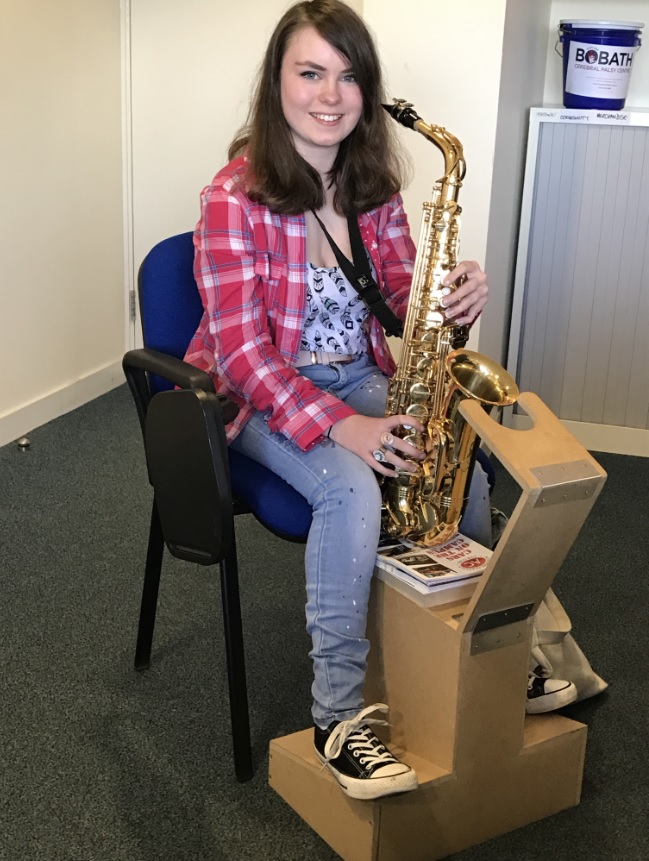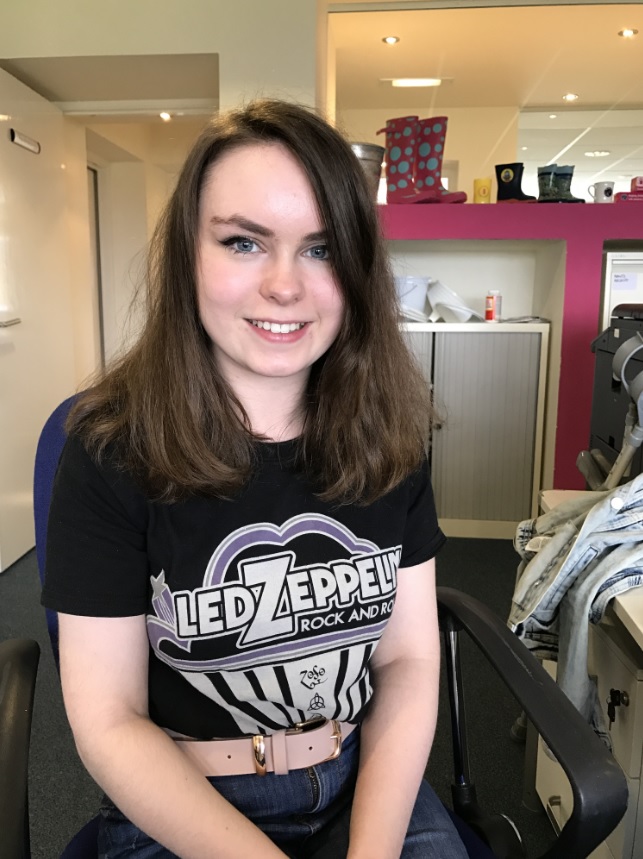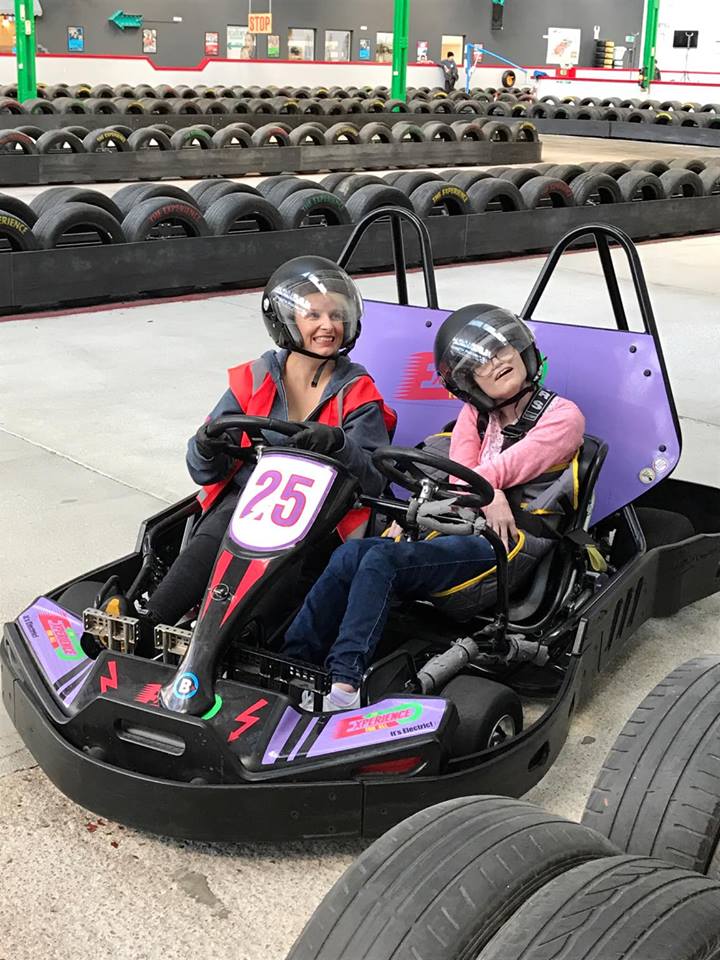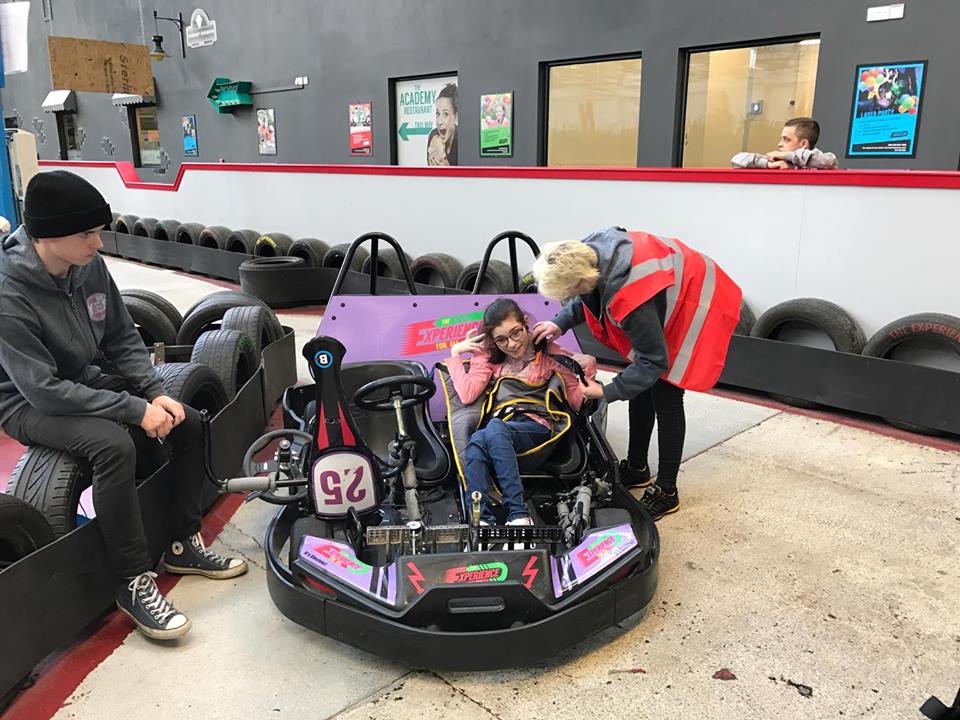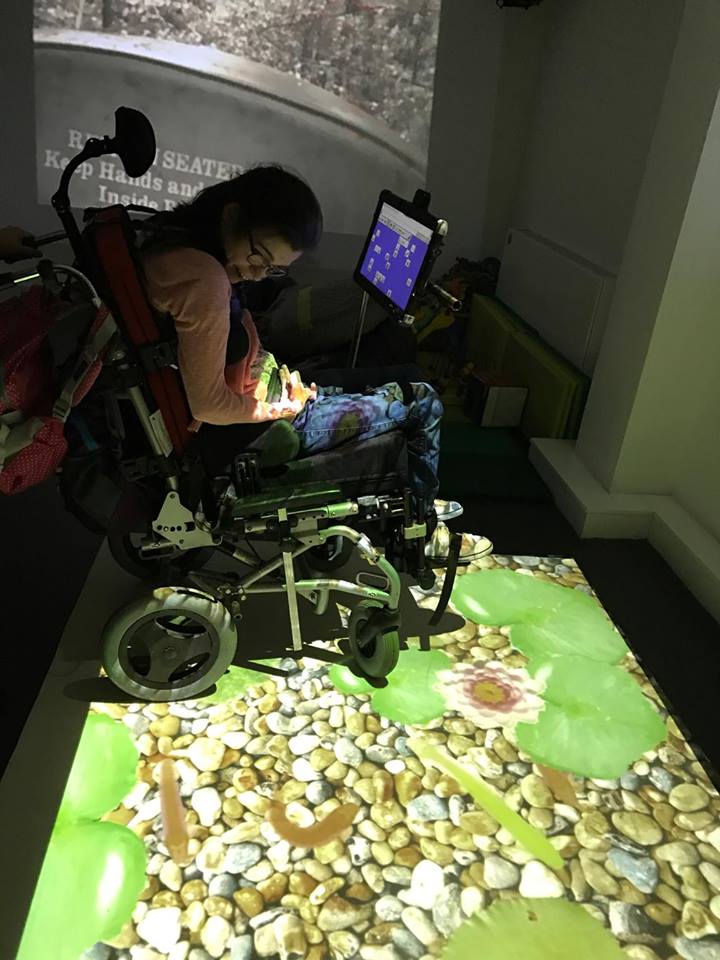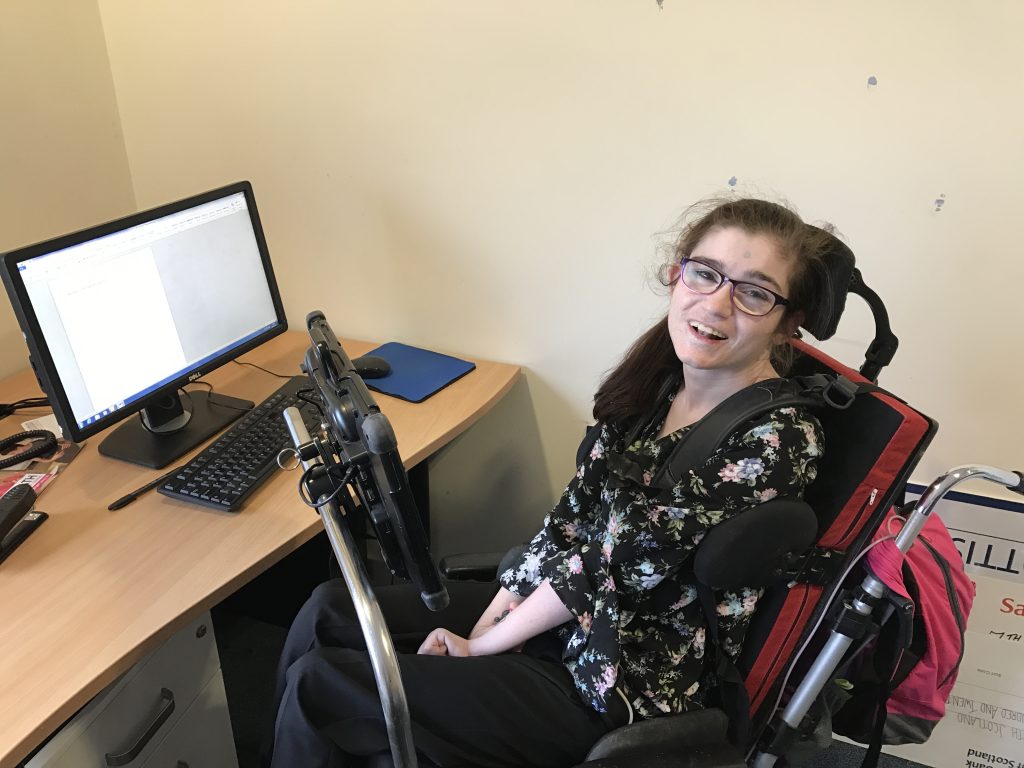10 things you need to know about my cerebral palsy
Kirsty gives us a list of all the things you should know about her life with cerebral palsy.
1. It doesn’t stop me from being myself
.jpg)
I like rock music and I want everyone to know it! I dress unconventionally, because I want to stand out from the crowd. People naturally assume because I sometimes use a wheelchair that I’d want to blend into the background, but far from it! I wear bright purple lipstick and AC/DC shirts because I want to be noticed. If they’re gonna stare then give ‘em a reason to!
2. My CP doesn’t give you a reason to patronise me

I’m seventeen so don’t treat me like I’m five! Just because you see me in a wheelchair doesn’t mean you can call me a “wee girl” – I may be baby-faced but this wheelchair ain’t no pushchair! (These pictures are from when I met the band 10CC, who were very nice. This is Mick Wilson trying to steal my hat!)
3. I don’t need your help
I’m pretty independent, so when people are pushing and pulling me every which way, it’s more annoying than helpful. If I need your help – I’ll ask for it. Just because you think I’m struggling doesn’t mean that I actually am. This picture is from when I went on my first proper holiday without my parents – Switzerland with my Girl Guides!
4. I’m not just a label!
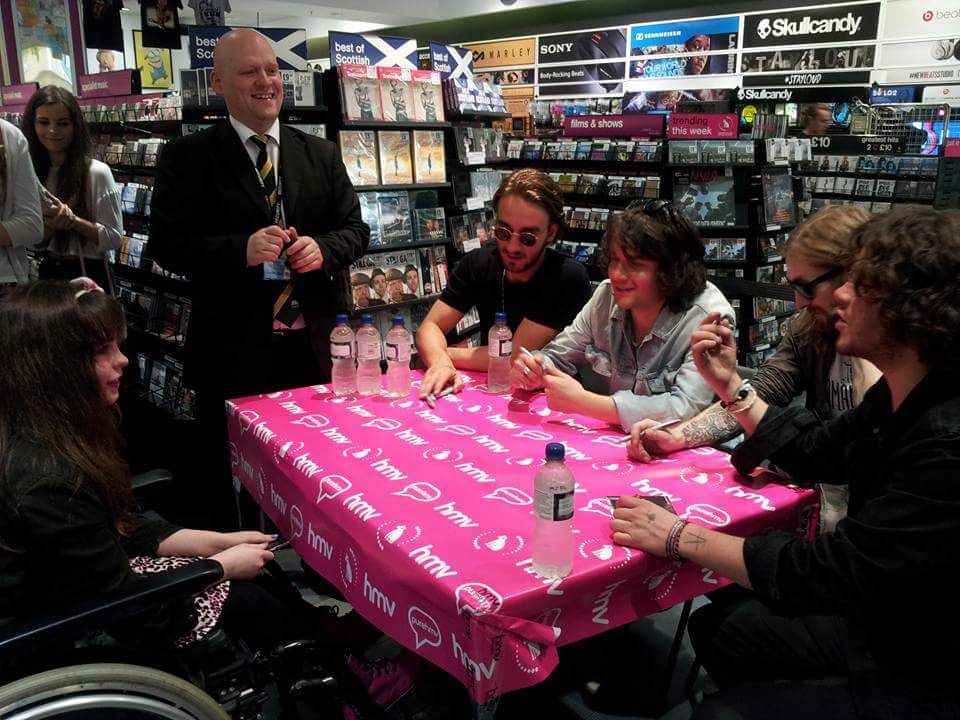
I can remember going to an album signing by a band that I really liked (The View) and being referred to as a “wheelchair”, by the security guard who kindly instructed everyone to “let the wheelchair through”. I honestly felt like saying “Excuse me, I have a name”! I mean you wouldn’t refer to someone as just “green shirt” or “blue jeans”. You wouldn’t call someone by just the clothes they are wearing, so why refer to me as an inanimate object?
5. I don’t want surgery to “fix me”
I have been offered the option of surgery a few times, but I don’t want it! There are no guarantees that it will definitely work, and I would be in cast for months. When I told people that I was offered the option, but turned it down, they responded as if I had just turned down a million pounds! There is no real cure for cerebral palsy, only ways to make the effects of it less profound; like physio. So, I would rather not go through extensive surgery in order to “fix” something, which really, cannot be fixed. This picture is from one of my botox appointments a couple of years ago – where I used to get botox injected into my legs in order to make them looser.
6. I’m not self conscious about my CP
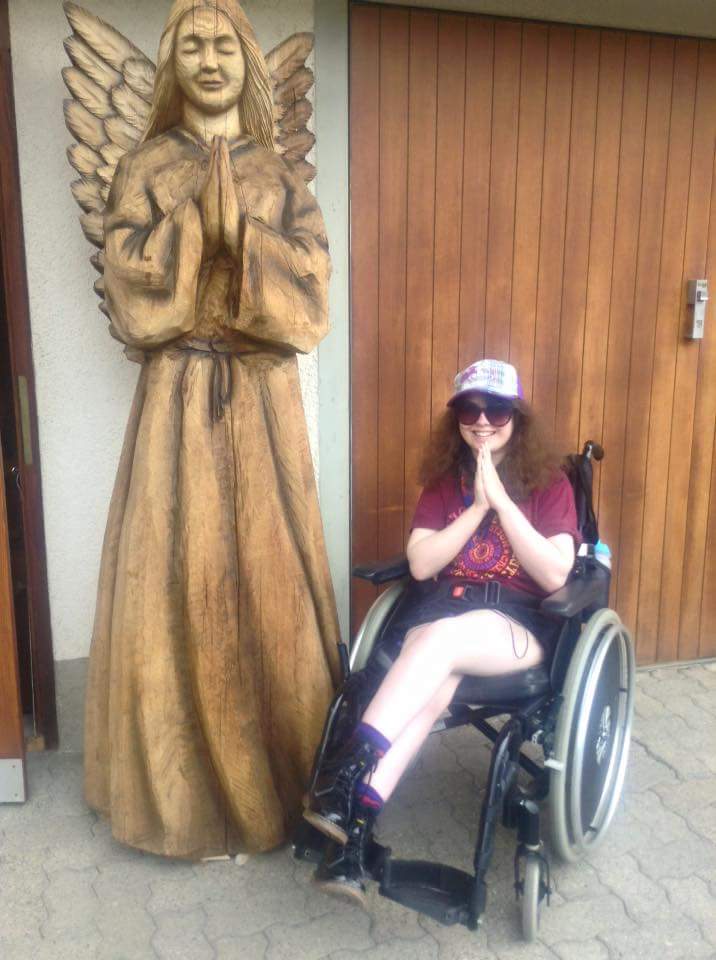
My cerebral palsy has affected me my whole life, so I’ve gotten used to it. It isn’t on my mind every second of every day – in fact, it’s rarely ever on my mind. I’ve gotten used to dealing with the obstacles I face every day, and even though I walk very differently to other people (dragging my foot, etc..) it’s not something that plays on my mind. As I have never experienced what it is like to live without my CP, I have no reason to be self-conscious, as this is who I am. This is another pic from Switzerland!
7. Growing up with a disability makes you appreciate more
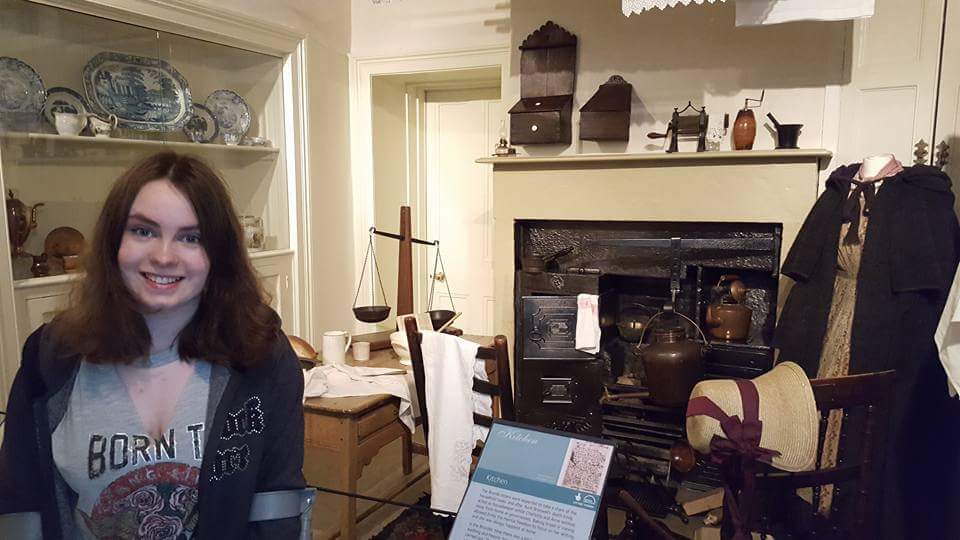
I don’t take anything for granted, I walk as often as I can and never use my disability as an excuse not to do anything – unless I physically can’t do something. I hate seeing people taking their ability for granted. In April I walked around the full Brontë museum in Yorkshire, and walked up two flights of really steep steps because I am a huge fan of the Brontë sisters and didn’t want to let my CP stop me from experiencing something that I loved.
8. Not everyone with cerebral palsy is the same.jpg)
Cerebral Palsy affects the brain; hence no two cases of it are exactly the same. The symptoms can range from speech problems to muscle stiffness, learning difficulties to weak limbs, and there are many different “types” of CP, so the severity of it can range from mild to severe. I’m lucky, as my Cerebral Palsy is very mild, and I now use crutches the majority of the time, however, I feel like there is a stereotype that all people who have CP have a learning difficultly, or can’t talk, or use a wheelchair 24/7. Whereas this is the case for a lot of people with Cerebral Palsy, it’s not with me. I feel like people tend to judge very quickly when they see me in my wheelchair, and assume that I am not as smart as I am, or feel like they have to talk down to me, which is incredibly annoying. Even my best friend didn’t know that there were other severities of my disability, and that the effects of my CP were mild, therefore I feel like there needs to be more information out there about my condition, and for people to be taught that not everyone with it is affected in exactly the same way.
Here’s my Dad and I enjoying the sun!
9. There is no cure
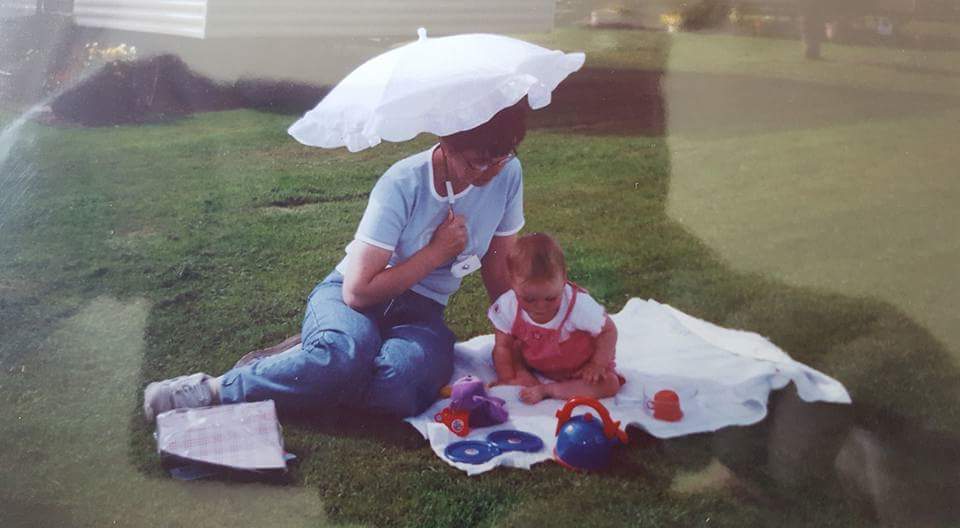
As I said before, the only options of reducing the effects of CP are either physio or surgery; there is no real cure. However, I don’t let that fact get me down. Sure, if I had the option to change a few things about myself, I would, wouldn’t we all? But, would my CP be one of them? Probably not. My Cerebral Palsy is part of who I am, without it I wouldn’t be the person I am today. I try to be as positive as I possibly can about everything, and try to live as “normal” a life as I can, as, after all, I am normal. This is a pic of my Mum and me when I was about 2.
10. Friends and family get you through it!
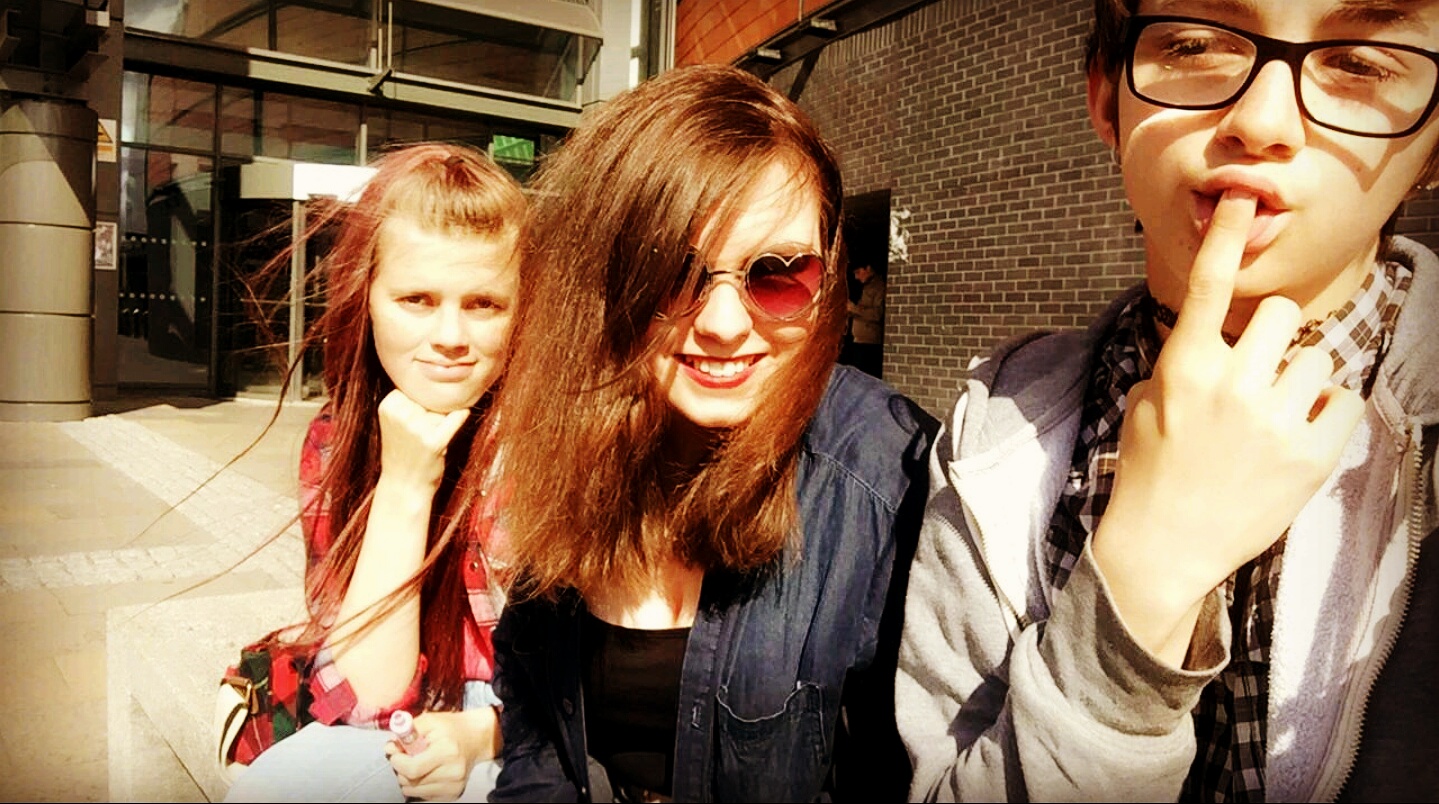
I have been so blessed to have an amazing family and awesome friends. It is thanks to these people that I can stay positive about myself and be happy! They never patronise me or treat me differently because of my condition, and it’s because of this that my mind isn’t constantly plagued with the fact I have Cerebral Palsy. In my eyes, I’m just a seventeen year old Rock Chick ready to take on the world no matter what life throws at me!


